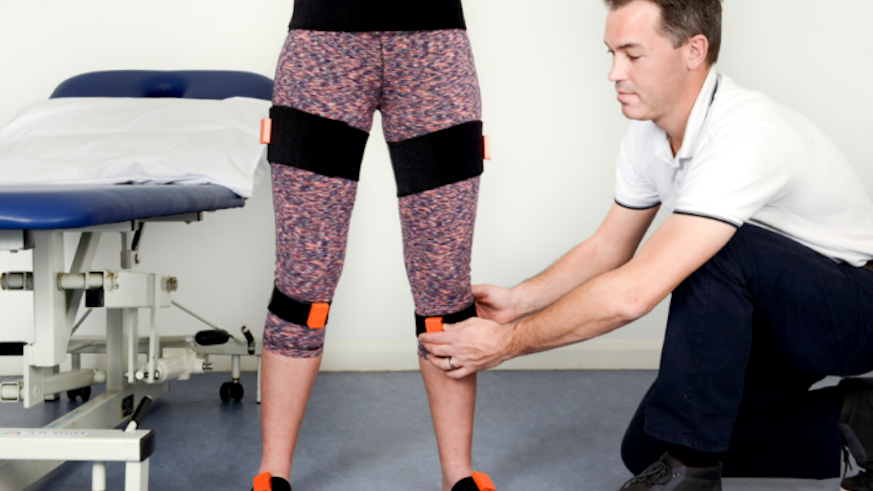Cardiff University researchers support the development of software set to revolutionise physiotherapy
19 June 2020

Researchers from the School of Healthcare Sciences, Cardiff University have joined forces with The Open University (OU) to develop free software that can assess movement in people recovering from lower limb injury or surgery.
Dr Mohammad Al-Amri, Dr Kate Button and Kevin Nicholas have worked with a team from OU including; PhD student Riasat Islam, Dr Simon Holland, Professor Blaine Price, Dr Paul Mulholland and Dr Mohamed Bennasar, to create a custom prototype known as MoJoXlab.
MoJoXlab can be used to assess an individual’s progress when recovering from injuries and conditions to the hip, knee and ankle.
The movement analysis software was tested using an algorithm developed by researchers at Cardiff University’s Biomechanics and Bioengineering Research Centre Versus Arthritis and was validated using data collected by a team at Cardiff University.
Data was obtained from 27 healthy individuals and 20 patients with anterior cruciate ligament (ACL) reconstruction. Each person was asked to perform activities, such as walking, jumping and squatting, and their movements were captured by Xsens MTw2 wearable sensors and analysed using the prototype.
The results showed that MoJoXlab is comparable to other expensive software on the market. Thus, offering healthcare professionals a cheaper alternative to accurately measure and analyse lower-limb movement to the required clinical accuracy.
Dr Al-Amri, Cardiff University, said: “MoJoXlab is an accessible and accurate way to monitor and measure the progress of a patient.”
“One of our aims is to bridge the gap between laboratory human analysis and clinical settings. MoJoXlab can be used in clinical settings to not only improve physiotherapy treatment time but also to support the NHS in delivering the best possible patient outcome.”
Riasat Islam, OU PhD student, said:
“We are proposing a free alternative and have developed a prototype that can be easily used by clinicians, such as physiotherapists, sports scientists or anyone who is interested in lower-limb movement analysis using wearable inertial sensors.
For people recovering from lower limb injuries, physiotherapists can use wearable sensors and MoJoXlab software to analyse their movements more effectively.”
Dr Kate Button, Cardiff University added; “This is an exciting development for physiotherapy as this brings us a step closer to people with knee conditions being able to use sensor technology in their own homes, to gain feedback on the quality of their movement and personalise their treatment.”
For more on the study and the prototype, read the paper published in the Journal of Medical Internet Research on mHealth and uHealth.